
This week the UK's consensus on tackling Coronavirus began to fragment, following the partial relaxation of lockdown in England, while administrations in Scotland, Wales and Northern Ireland held to a firmer and more cautious line. Now that people within England are free to travel any distance for exercise, local authorities and mountain rescue organisations in upland areas fear the consequences of a mass influx of visitors, a situation some complain they were not consulted on, and one that most appear to feel unprepared for.
Here's what Mountain Rescue representatives from across the UK have been saying this week:
The Lake District
When we volunteered to be involved with mountain rescue, none of us signed up for this
While the overall number of rescue call-outs in Cumbria has been extremely low since lockdown began, down to around 1/10th of normal, the worry locally is that a surge in visitors will lead to a rapid increase in incidents, at a time when the capacity of teams is seriously limited by the demands of Coronavirus.
Every call-out places both rescuers and rescued at risk of virus transmission, point out MRTs, while Cumbria is also experiencing some of the most serious effects of the virus at present.
In response, Cumbrian teams have been asking the public not to exercise their freedom to travel to the area in the immediate future, and to stay off the high fells if they do decide to visit.
"As a mountain rescue team we're not here to police the fells. However, we as individuals are not going out into the mountains because we know the risks this may place on others should an accident or medical incident occur" said Patterdale Mountain Rescue Team in a Facebook post on 12th May.
"Following the Government's announcement on Sunday it's now down to people's own good judgement and conscience as to whether they travel here to exercise. All we can do is highlight our concerns and hope that people will support us as we have always supported them."
A mountain rescue incident typically involves anything between 10 and 30 personnel, they go on, each putting themselves in situations where social distancing is 'almost impossible':
"The PPE you see doctors and nurses wearing in hospitals is far from ideal fell attire so, whilst we'll do our very best, contact and contamination from team member to team member and to/from casualties is almost inevitable if we become busy.
"Should anyone that we rescue latterly test positive for Covid19 all of those personnel involved with their rescue will be forced to self-isolate along with the rest of their household. This will then obviously affect our ability to respond to any other incidents over that two week period. Remember we also have day jobs too…"
"While the mountains seem like the ideal place to socially distance what happens when it all goes wrong? Nobody goes out for a day on the fells expecting to have to call on our help but accidents do happen. Please just take a few minutes to think about your actions and the potential consequences before planning your walk in the Lakes. At this time we'd rather you didn't venture onto the High Fells of Lake District and that's a message that goes for locals as well as those contemplating travelling to the area. We are staying away and, for now, we'd rather you did too."
In a similar vein, is a widely shared Facebook post from Coniston Mountain Rescue Team.
"We're asking you to think twice, even three times before you embark upon travelling to the Lake District for your exercise" they said.
"The risk, however small, is real."
The post goes on to give the chronology of a potential rescue scenario, at a time when casualties and team members are all at risk of picking up or passing the virus around:
Echoing these comments is this from Langdale Ambleside Mountain Rescue Team:
"Please be aware that our normal joking, jolly approach to rescue may be tempered by increased concerns for our own and our families' safety, and the awareness that one simple error could take a whole team offline for weeks."
"When we volunteered to be involved with mountain rescue, none of us signed up for this."
Richard Warren of Lake District Search and Mountain Rescue Association updates on the mountain rescue situation in the Lake District, May 9th:
The message from Lake District teams is echoed by local police and the National Park Authority.
Assistant Chief Constable Andrew Slattery, Chair of Cumbria's Local Resilience Forum, said:
"We know people love the Lakes and when the time is right we will of course warmly welcome back visitors. But now is not the right time. Cumbria has been one of the worst affected parts of the UK and Coronavirus is far from over, we still have people being infected and people dying in the county on a daily basis. People coming into the county from elsewhere just makes the job of containing and controlling the outbreak more difficult. We've said it before, the Lake District isn't going anywhere, so please put off your visit for now."
At this time we'd rather you didn't venture onto the High Fells of Lake District, and that's a message that goes for locals as well as those contemplating travelling to the area
Richard Leafe, the Lake District National Park Authority's Chief Executive said:
"Following the Government's announcement that people will be able to travel for exercise from Wednesday (13 May), we know that many will be keen to visit the Lake District. This is understandable for the many physical and mental health benefits the National Park provides. However, sadly Cumbria currently has one of the highest Covid-19 infection rates in the UK, therefore keeping our staff and local communities safe must remain our priority. For example, our mountain rescue teams are made up of volunteers, many of whom work in the NHS and other frontline professions, so we cannot afford to put unnecessary pressure on them. So for now, we're asking people not to rush back to the Lake District - help protect our communities, the fells will still be here when this passes.
"Campsites, hotels, restaurants and many businesses across the Lake District remain closed. When the time is right, we look forward to welcoming visitors back to the Lake District and have been working with partners to put measures in place that will help keep people safe, such as new car park information and availability to help plan ahead.
"For now, we ask everyone who lives in and visits the Lake District to act responsibly, continue to observe social distancing and stay safe."
New BMC Guidance on Walking and Climbing
For those in England keen to get out climbing or hillwalking despite the persistence of serious safety concerns, the BMC have released some helpful guidance on how to minimise the risk:
"If you're thinking of going climbing or hill walking this weekend, in addition to our general advice and maintaining a strong sense of social responsibility, we have been considering practical measures to minimise the likelihood of transmitting the virus."
A set of guiding principles is useful to remember and apply across all your outdoor activities:
- Keep 2m apart from anyone outside of your household.
- Hand hygiene is crucial, but washing hands properly is impractical in the outdoors. Carry and use hand sanitiser after any contact with surfaces or shared equipment.
- Current World Health Organisation advice on which hand sanitisers kill the Covid-19 virus is that they should contain between 60% and 80% alcohol to be effective.
- Avoid popular venues, pinch points and routes which force you close to others.
- Whatever you are doing, scale back your ambitions and be fully confident of your physical and technical ability for any objective you embark upon.
- Mountain Rescue capability is hugely reduced/diminished and any response is likely to take longer and with reduced resources compared to normal, not to mention increasing risk of transmission between casualties and team members.
- Carry a separate plastic bag to hold used disposable gloves.
For more detailed info on climbing and hillwalking see thebmc.co.uk
Wales
In Wales, although it is now permitted to exercise more than once a day, the emphasis is still on staying at home unless you have a 'reasonable excuse' not to do so.
Exercise should be taken from home, rather than travelled to. It remains unclear if climbing and hillwalking qualify as 'reasonable' but what's clear is that people from outside Wales should not be travelling there to exercise.
Following the easing of lockdown measures for England announced by the Prime Minister last Sunday, members of North Wales Mountain Rescue Association have thanked the public for respecting the continuing lockdown in Wales by staying away from the hills there.
"The mountains remain quiet apart from the sounds of the sheep and the birdsong" said Chris Lloyd, Press Officer for the Association in a statement today, "and it is important that they do so."
"Mountain Rescue Teams are staffed by volunteers. During this Covid-19 pandemic, a number of these volunteers are not available as they either work for or share a house with someone who works for the health services or other key jobs. Other team members may choose not to increase the risk of infecting themselves and their families by attending rescues, where the casualty or fellow team members may be carrying this virus. As a result, the Mountain Rescue service is reduced."
The Association echoes the concerns expressed in the Lake District, that if any team member is known to have been exposed to the virus then all colleagues on that call-out will have to be quarantined.
"Similarly, vehicles and rescue equipment that has been put at risk of infection has to be quarantined for three days, further limiting resources" Chris Lloyd points out.
"Trying to maintain social distancing on a crag, carrying out ropework and carrying a stretcher is not possible, thus increasing the risk.
"MRTs have been able to get PPE, but this has been designed for indoor use. Pacing up a mountain, carrying a heavy load with a cotton shield over your nose and mouth is not pleasant. A polythene apron is just not practical so full waterproofs are to be worn, whatever the weather. Working in the rain and wind with a clear visor covering your face is not practical. Goggles/safety spectacles are worn.
"Please be patient and not be a patient. Our mountains remain closed to visitors until the Government of Wales instructs otherwise. But they will still be here when the pandemic is over."
"Please do not put members of the Mountain Rescue Teams at additional risk and the staff of the Health Service should you have an injury.
"Thank you for staying away."
Scotland
As we approach the end of week seven of lockdown, mountaineering organisations in Scotland are asking the hill walking and climbing community to "hold the line" and to avoid travel and stay local for their daily exercise in accordance with the current Scottish Government COVID-19 guidance.
Despite the easing of restrictions in England this week, the advice for people in Scotland remains the same: stay home and only go out for essential work, food or health reasons – although people in Scotland may now go outside to exercise more than once daily.
"These are unprecedented times" said Stuart Younie, CEO of Mountaineering Scotland "and I'd like to thank Mountaineering Scotland members for keeping to the current guidelines."
"We know it's been a challenge but it's great to see the mountaineering community pulling together in this way. We want to see an immediate return to hill walking, climbing and other outdoor activities as lockdown starts to ease, and have been encouraged by the way the outdoor sector in Scotland is working together to make this happen in a safe and responsible way."
Mountaineering Scotland is currently leading discussions with partners in the Mountain Safety Group on how to deliver a phased return to the hills.
This group of key mountain safety organisations, including Mountaineering Scotland, Scottish Mountain Rescue, Police Scotland, Mountain Training Scotland, Glenmore Lodge and the Association of Mountaineering Instructors, has developed proposals this week which are being submitted to the Scottish Government outlining how mountaineering activities such as hill walking, climbing and bouldering might be re-introduced.
Damon Powell, chair of Scottish Mountain Rescue said: "It is good to be working as part of the Mountain Safety Group, to ensure we can get people back out into the outdoors undertaking their preferred activities as soon as there is a safe and responsible way to do so within the Scottish Government guidelines. We hope to see everyone out there soon, but preferably not on a rescue!"
Following the UK Government's unilateral declaration of relaxation, the essential message from Scottish Mountain Rescue is that nothing north of the border has changed:




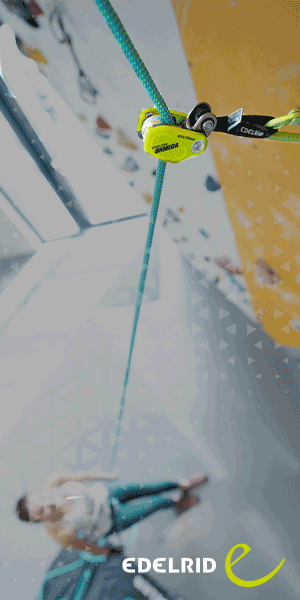





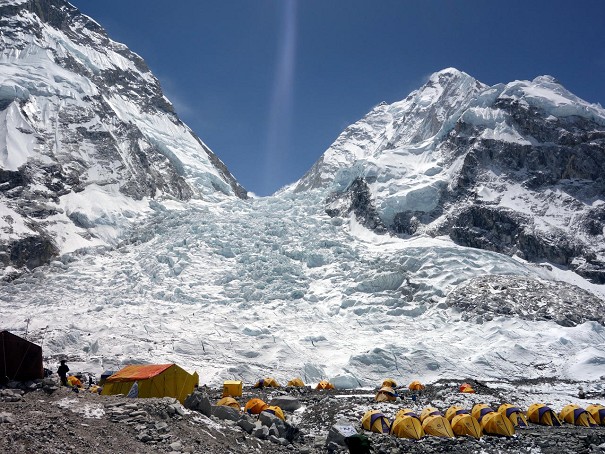
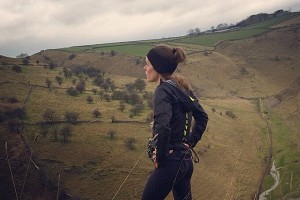
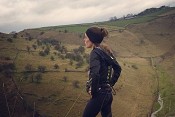
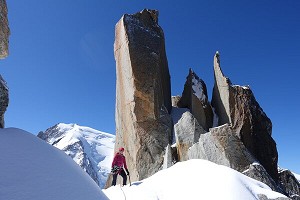
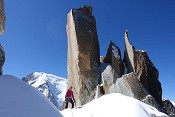

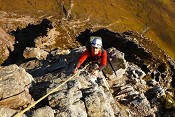
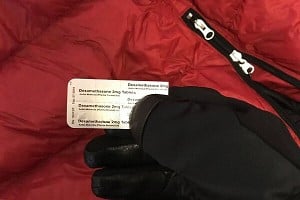
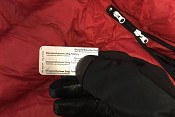
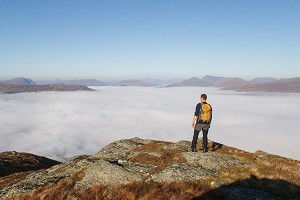
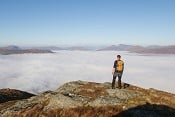
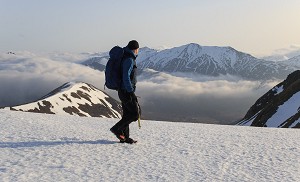
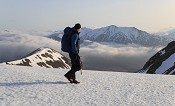
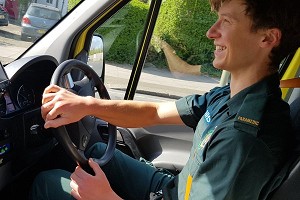
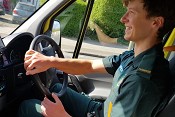
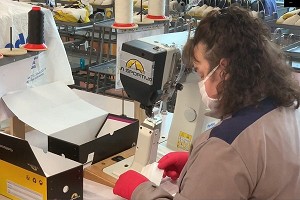
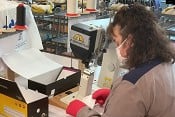
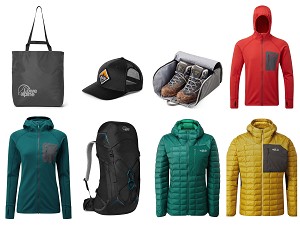
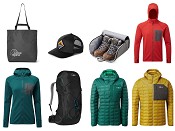
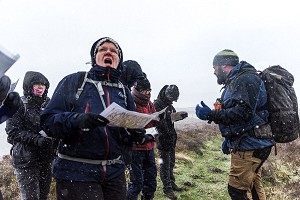
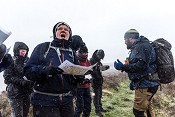
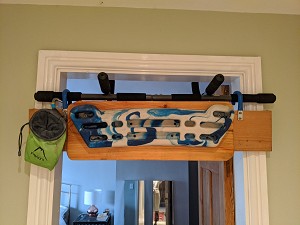
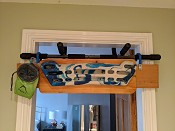
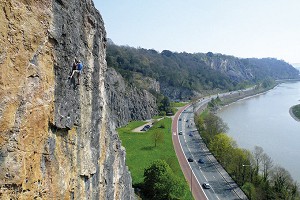
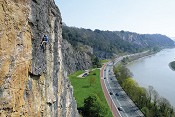
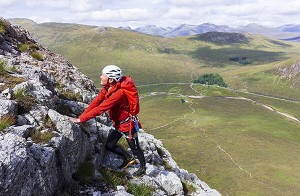
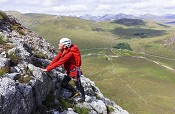
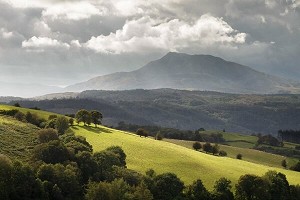
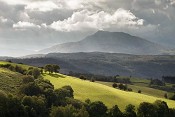
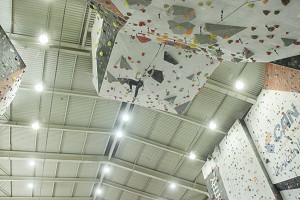
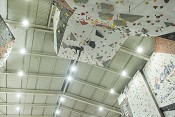
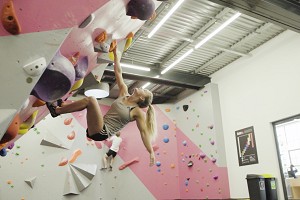

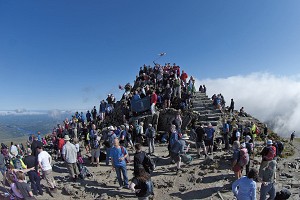
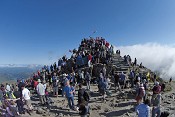
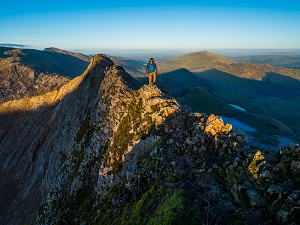
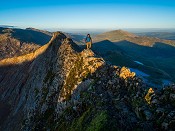
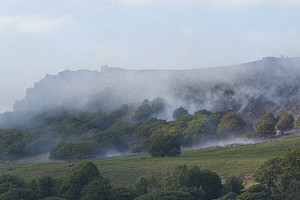
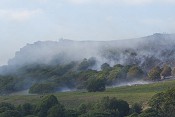
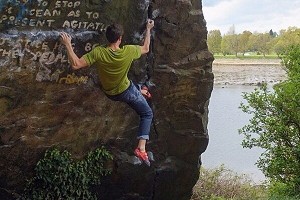
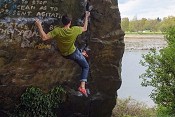
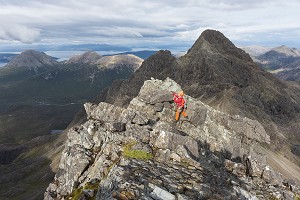
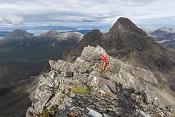
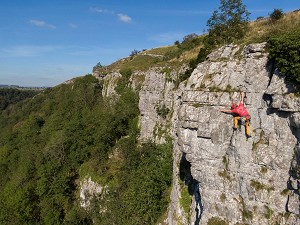
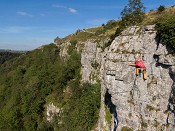
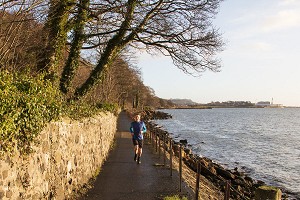
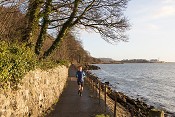
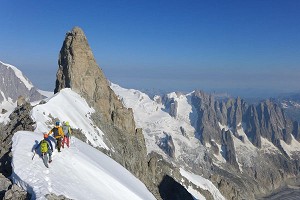
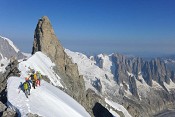
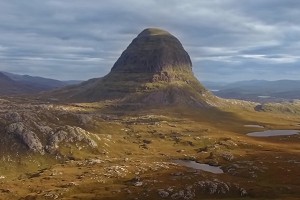
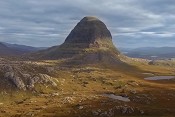
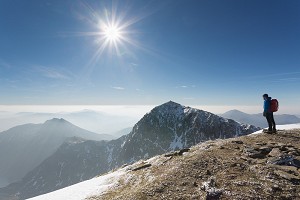
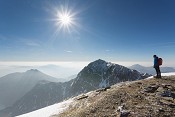
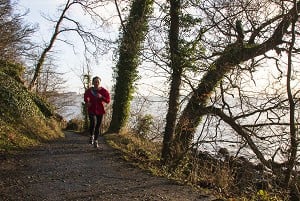
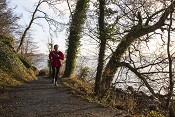
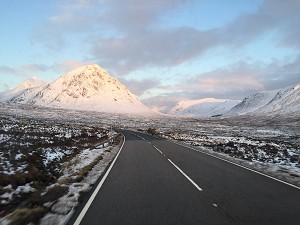
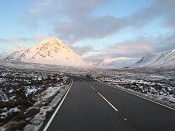
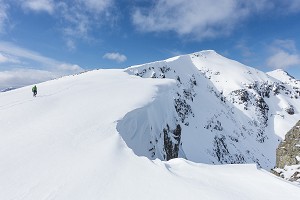
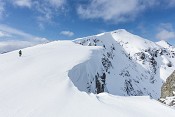
Comments